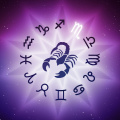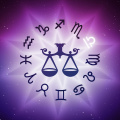Side Effects of Kiwi Fruit: Adverse Reactions Which May Shock You
Kiwi fruit may not be good for everyone. It may cause health complications and adverse reactions in some people. Check out some of the side effects of Kiwi fruit.
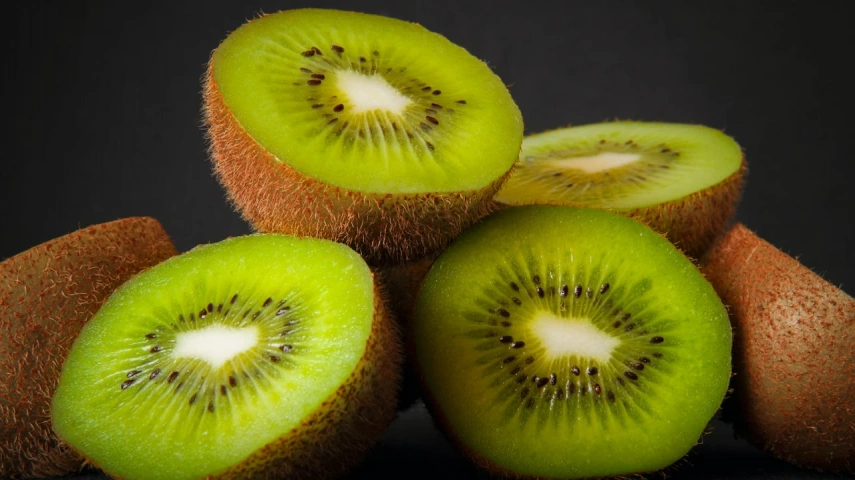
Kiwi fruit is generally considered safe for consumption, but some individuals may experience allergic reactions or digestive discomfort due to specific sensitivities. Knowing the side effects of Kiwi fruit may make you want to rethink binge-eating Kiwis. By examining scientific research and consulting with healthcare professionals, we can better understand these potential side effects, enabling us to make well-informed choices about incorporating Kiwi fruit into our diets.
By addressing this topic, we can ensure that you are aware of the disadvantages of Kiwi fruit and consume it wisely.
How to Use Kiwi?
While it may come to your mind that Kiwis are delicious, tangy fruits that are difficult to incorporate into your diet other than just fresh cuts, you might be wrong.
Before you try these recipes, you need to understand the taste and the perfect ripeness of the fruit. Always select the one that has a firm texture and an even olive green color all over; a little brown patch on either side could mean it is rotten. Also, try to smell for ripeness. A sweet smell would mean the Kiwi is perfectly ripped and ready to be eaten, while one with an extremely hard texture and a tangy smell would mean it needs a little more time before you eat.
Now that you are all done deciding which ones to pick for your recipe, read on for the best Kiwi recipes to enjoy the benefits without any side effects.
1. Fresh And Simple:
Peel the Kiwi fruit and cut it into slices or bite-sized pieces. Enjoy it as a refreshing and healthy snack on its own. You may also combine Kiwifruit with other acidic fruits like strawberries, oranges, or grapes.
It is significant to note that you should avoid mixing high-protein fruit like Kiwi with starchy fruit like bananas or plantains. This could slow down the digestion process and interrupt body mechanisms.
2. Kiwi Yogurt Smoothie
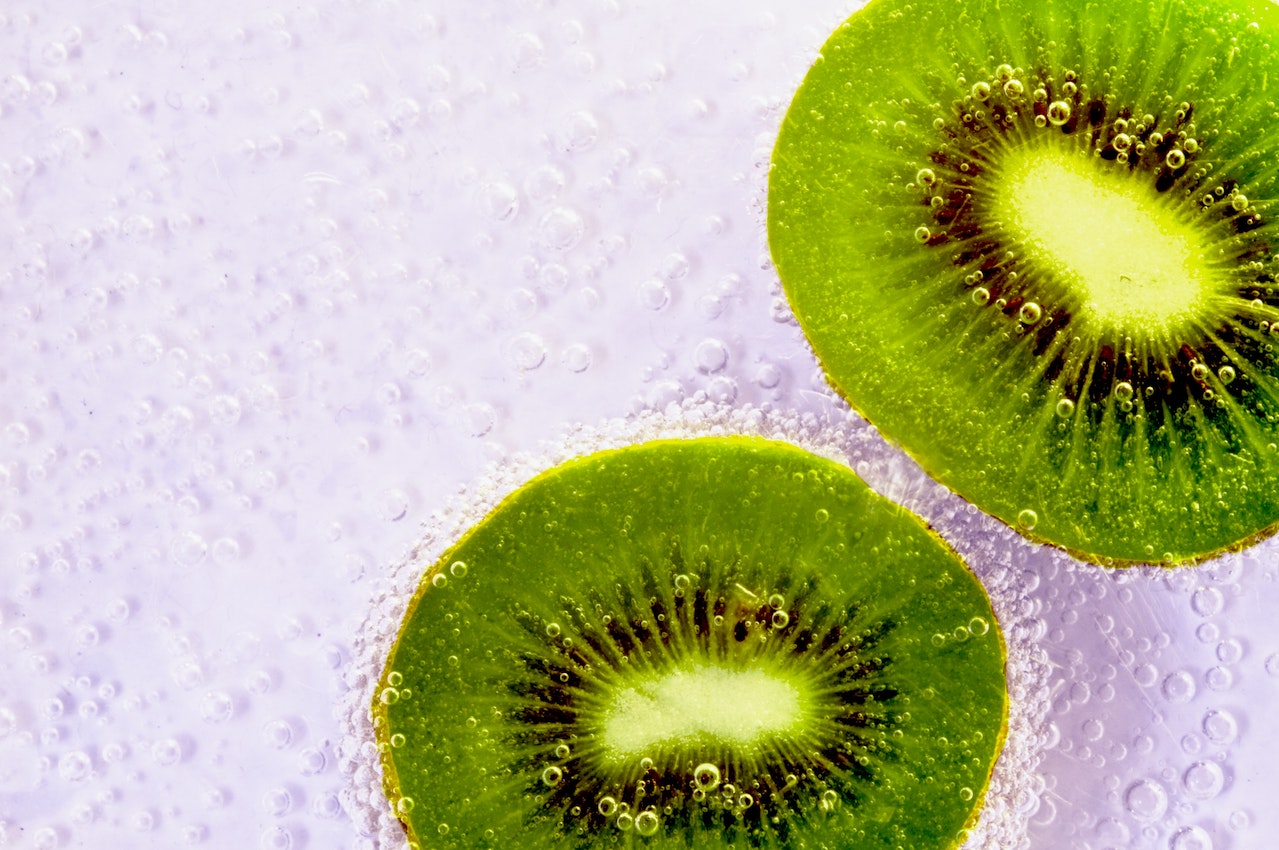
Sprinkle Kiwi fruit slices and Kiwi pulp on top of your favorite yogurt for added texture and a burst of tangy flavor. You can also drizzle some honey or sprinkle granola on top for a delightful breakfast or snack. Enjoy a low-sugar meal and a lip-smacking dessert.
You can also add other citrus fruits, like oranges or apples.
3. Kiwi Salsa
Who doesn’t love fruity and spicy salsa for tacos? It's easier to make and hardly takes minutes to prepare.
Dice Kiwi fruit along with ingredients like tomatoes, onions, jalapenos, and cilantro to create a flavorful Kiwi salsa. This tangy and slightly sweet salsa pairs well with tacos, grilled meats, and fish, or as a dip with tortilla chips.
4. Kiwi Ice Pops
Puree Kiwi fruit with a little water or fruit juice, pour the mixture into ice pop molds, and freeze them for a homemade icy treat. You can also add small fruit chunks for added texture.
5. Kiwi Bread
Yes, you read it right. Kiwi bread is a thing, and trust us, it tastes delicious. If you love banana, orange, or fruity bread, you are surely going to love this.
Add the Kiwi puree to the wet batter and mix with the dry ingredients. You probably have everything in the kitchen and stuff it in the oven just like you make any other bread. Enjoy the bread alone, or top it up with mascarpone cream and have it as a dessert.
6. Kiwi Marinade:
Puree Kiwi fruit with your choice of herbs, spices, and oils to create a flavorful marinade for meats, poultry, or tofu. The enzymes in Kiwi fruit can help tenderize the protein while adding a unique taste.
7. Kiwi Chutney:
If you are a fan of Indian cuisine, you would love Kiwi chutney with every meal. Cook diced Kiwi fruit with ingredients like onions, ginger, spices, and garlic to make a flavorful and zesty chutney. Enjoy it as a condiment with grilled meats, stews, curries, crisps, cheese, or Indian-inspired dishes.
Nutritional Value of Kiwi
Kiwi fruit is a powerhouse of nutrition, offering many beneficial nutrients. Here is the nutritional value of medium-sized Kiwi fruit (approximately 100 grams) based on USDA data (1):
- Calories: 64
- Carbs: 14 grams
- Fiber: 3 grams
- Fat: 0.44 grams
- Protein: 1 gram
- Vitamin C: 83% of the Daily Value (DV)
- Vitamin E: 9% of the DV
- Vitamin K: 34% of the DV
- Folate: 7% of the DV
- Copper: 15% of the DV
- Potassium: 4% of the DV
- Magnesium: 4% of the DV
12 Side Effects of Kiwi Fruit
Let’s dig deep into the Kiwi fruit side effects.
1. Pregnancy Complications
Pregnancy is a crucial period during which a woman's diet plays a significant role in ensuring the health and development of both the mother and the baby. As expectant mothers strive to make informed dietary choices, it is important to eat healthily but mindfully.
The folate requirement of the maternal body is 600µg/day (2). Anything above or beyond that may be harmful. Kiwis are rich in folic acid (3) and overconsumption of Kiwis can prove harmful.
Before starting with any fruit during pregnancy, it is always advisable to go slow; in case of any side effects of Kiwi fruit for pregnant women, one must consult a doctor.
2. Oral Allergy Syndrome
Oral allergy syndrome (OAS), also known as a pollen-food syndrome, is a condition where individuals experience allergic reactions to certain fruits and vegetables due to cross-reactivity between proteins in these foods and environmental allergens such as pollen, seen particularly in children.
Kiwi (Actinidia deliciosa) is one of the common triggers of OAS, particularly in individuals with pollen allergies. When a person allergic to tree or grass pollen consumes Kiwi, their immune system recognizes similar proteins in Kiwi as allergens, resulting in an allergic reaction.
A study published recently examined 86 patients with OAS and found that Kiwi was among the top three fruits causing symptoms. The researchers noted that 76% of patients experienced symptoms such as itching, swelling, and tingling in the mouth, throat, and lips after eating Kiwi (4).
It is important to note that the severity of OAS symptoms can vary from mild discomfort to severe reactions. In some cases, OAS symptoms can spread beyond the oral cavity, causing wheezing or difficulty breathing. Therefore, individuals with known pollen allergies or a history of OAS should exercise caution when consuming Kiwi or other related fruits to minimize the risk of allergic reactions.
3. Drug Interactions with Kiwi
Food with a high vitamin K component has potential effects on anticoagulant drugs; one such drug is warfarin. While the studies are limited, one such study has shown that individuals taking anticoagulant medications with high vitamin K intake from foods like Kiwi had a reduced effect of the medicine. This may increase the risk of blood clotting or cause other complications (5).
Simultaneously, Kiwi might amplify the allergic reaction when it interacts with drugs. Hence, with any potential drug interactions, a healthcare professional’s advice is necessary.
4. Kiwi May Cause Digestive Discomfort
Some individuals may experience digestive discomfort after consuming Kiwi. There are several reasons one might feel digestive discomfort, one of which is a low fiber tolerance. People might be sensitive to high-fiber foods and get bloated or gassed very often.
As per research, participants eating two Kiwis daily for four weeks improved their bowels, but it also led to constipation in others.
Furthermore, actinidin, an enzyme present in Kiwi is known to aid in protein digestion. If actinidin is present in Kiwi, people with sensitive digestive systems or underlying digestive disorders like irritable bowel syndrome (IBS) may experience digestive symptoms like abdominal pain, diarrhea, or nausea (6).
5. Kiwi May Cause a Skin Reaction
Skin reactions are among the second most common allergic reactions after OAS due to Kiwi. People with sensitive skin may get redness, itching, or inflammation from direct contact with Kiwi.
For example, consumption of Kiwi fruit can trigger an allergic reaction that causes the release of histamine in the body. This histamine release can lead to the development of hives, which are raised, itchy, and often red welts on the skin.
People with pre-existing eczema may experience a worsening of their symptoms after coming into contact with Kiwi fruit. Eczema is a chronic inflammatory skin condition characterized by dry, itchy, and red patches of skin (7).
6. Latex Allergy Cross-Reactivity
Latex allergies and cross-reactivity with Kiwi fruit can occur in some individuals. Latex is a natural rubber that is commonly found in gloves, balloons, rubber bands, and various medical devices. The actinidin present in Kiwi can trigger allergic reactions in susceptible individuals. When a person with a latex allergy consumes or comes into contact with Kiwi fruit, their immune system may mistakenly identify the Kiwi proteins as latex proteins, leading to an allergic reaction (8).
The allergy could be as mild as a skin rash or may also escalate to vomiting, nausea, or anaphylaxis, causing breathing difficulties.
7. Kiwi May Cause Kidney Stones
While there are limited pieces of evidence suggesting the development of kidney stones because of Kiwis, the medical science theory might not be wrong too. Kidney stones are formed by the crystallization of uric acid, uric acid, and oxalate, which then form solid masses in the kidney.
Oxalate is one such substance that is also found in Kiwi and many other foods. This is known to contribute to the formation of kidney stones in some individuals. However, this does not mean that every individual who consumes Kiwi may develop kidney stones; it certainly depends on many other factors such as diet, genetics, and fluid intake (9).
8. Kiwi May Cause Low Blood Pressure
Kiwi might be one of the most nutritious fruits of all. While it is full of vitamins, minerals, and antioxidants, it may indirectly contribute to lower blood pressure in people already taking medicines to lower blood pressure.
With Kiwi’s high potassium content, when consumed in amounts greater than recommended (2 Kiwis/ day), it may interact with blood pressure medicines and result in a sudden pressure drop (8).
9. May Increase Blood Sugar Level
Kiwi has a low glycemic index, which means it is low in sugar; however, it is still high in carbohydrates, which can impact blood sugar levels. Diabetic patients need to be mindful while consuming Kiwis as it could potentially increase the blood sugar levels
While Kiwi fruit is relatively low in sugar compared to some other fruits, it still contains carbohydrates that can impact blood sugar levels. Therefore, individuals with diabetes need to be mindful of their carbohydrate intake, including the carbohydrates present in Kiwi fruit (10).
Carbs break down into glucose during digestion and raise blood sugar levels. Hence, while eating Kiwi regularly, diabetic patients need to monitor their sugar continuously.
Carbohydrates in foods are broken down into glucose during digestion, which can raise blood sugar levels. Monitoring carbohydrate intake is crucial for individuals with diabetes to manage their blood sugar levels effectively.
10. Kiwi May Worsen Asthma
Asthma is a chronic condition that may be triggered by any type of allergy (11). An asthmatic patient may worsen their symptoms after consuming Kiwi. Since Kiwi fruit contains proteins that can activate an allergic response in people with asthma. During an allergic reaction, the immune system releases substances like histamines, which cause inflammation and constriction of the airways, leading to worsening asthma symptoms like difficulty breathing, wheezing, coughing, or even shortness of breath (12).
11. Kiwi May Cause Headaches
Kiwi fruit contains a naturally occurring compound called tyramine, which is known to trigger headaches in certain individuals. Tyramine is produced when proteins in food break down over time, and it can cause blood vessels to constrict, potentially leading to headaches. Also, some individuals may be sensitive or allergic to certain compounds present in Kiwi fruit, such as phenols. Allergic reactions may manifest as headaches in a few cases (13).
12. Kiwi May Cause Diarrhea
Kiwi fruit is rich in dietary fiber, which is beneficial for digestive health. Overconsumption of fiber, on the other hand, can cause loose stools or diarrhea, especially if you're not used to eating a high-fiber diet. Fiber adds bulk to the stool and promotes regular bowel movements, but overconsumption can have a laxative effect.
Kiwi fruit also contains enzymes, such as actinidin, which can have a natural laxative effect in some individuals. These enzymes help break down proteins in the digestive system but can also increase bowel movement frequency or loosen stools in sensitive individuals (14).
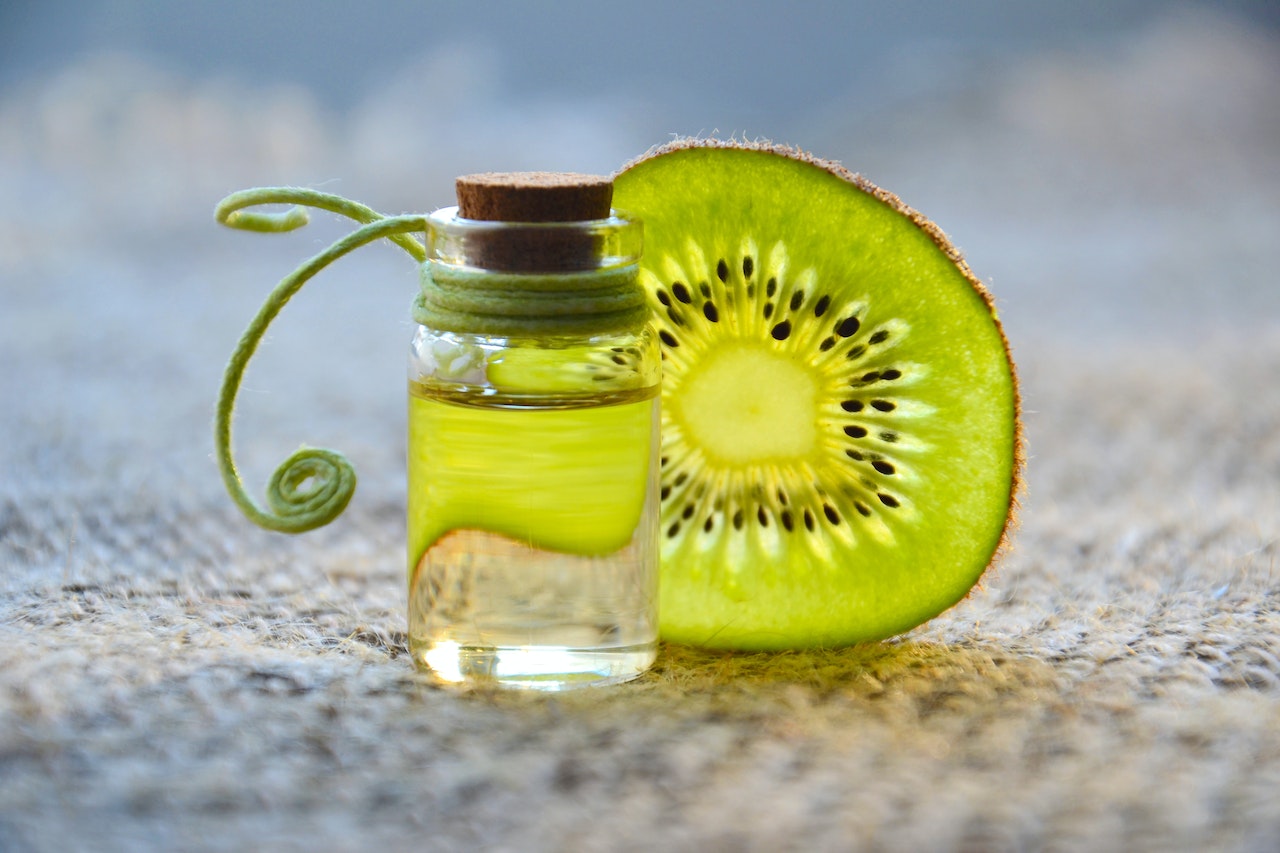
To summarize, the Chinese gooseberry, commonly called Kiwi, is one of the most remarkable fruits that offer countless health benefits with its impressive nutritional value. Antioxidants, vitamins, and minerals in Kiwi help support the digestive and cardiovascular systems of the human body.
It is equally important to know the unexpected side effects of Kiwi fruit when consumed in excessive amounts. Some individuals may experience allergic reactions to Kiwi, characterized by symptoms such as itching, swelling, or difficulty breathing.
It is crucial to emphasize that the side effects of Kiwi fruit are relatively rare and typically affect individuals with specific allergies or those who consume excessive amounts. By understanding and moderating your intake, you can enjoy the many advantages that this vibrant and delicious fruit has to offer while also prioritizing your individual health needs.
Sources:
1. Kiwifruit, green, raw
https://fdc.nal.usda.gov/fdc-app.html#/food-details/327046/nutrients
2. Nutritional Requirements for Maternal and Newborn Health
https://www.ingentaconnect.com/content/ben/cwhr/2015/00000011/00000001/art00008
3. The nutritional and health attributes of Kiwifruit: a review
https://www.ncbi.nlm.nih.gov/pmc/articles/PMC6267416/
4. Kiwifruit Allergy in Children: Characterization of Main Allergens and Patterns of Recognition
https://www.ncbi.nlm.nih.gov/pmc/articles/PMC4928771/
5. Abstract 16175: Effect of Dietary Intake of Kiwi Fruit on 24-Hour Ambulatory Blood Pressure
6. Actinidin enhances gastric protein digestion as assessed using an in vitro gastric digestion model
https://pubmed.ncbi.nlm.nih.gov/20232890/
7. Contact urticaria on eczematous skin by Kiwifruit allergy. In vivo component-resolved diagnosis
https://pubmed.ncbi.nlm.nih.gov/25456531/
8. Prevalence of food allergy in 137 latex-allergic patients
https://pubmed.ncbi.nlm.nih.gov/10209685/
9. Total, Soluble and Insoluble Oxalate Contents of Ripe Green and Golden Kiwifruit
https://www.ncbi.nlm.nih.gov/pmc/articles/PMC5302238/
10. Glycemic i10. dex, glycemic load, and risk of type 2 diabetes
https://pubmed.ncbi.nlm.nih.gov/12081851/
11. The role of allergy in the development of asthma
https://www.nature.com/articles/35037009
12. Allergy to Kiwi in patients with baker's asthma: identification of potential cross-reactive allergens
https://pubmed.ncbi.nlm.nih.gov/18727477/
13. Effect of tyramine in migraine: a double-blind study
https://www.ncbi.nlm.nih.gov/pmc/articles/PMC494110/
14. The effect of green Kiwifruit on gas transit and tolerance in healthy humans





 JOIN OUR WHATSAPP CHANNEL
JOIN OUR WHATSAPP CHANNEL











































































